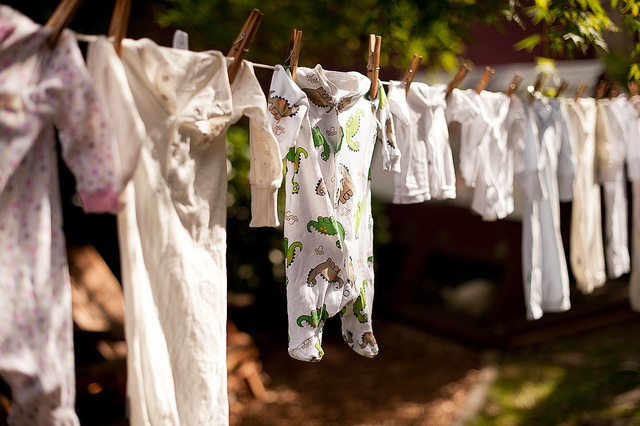
Laundry is a routine task in every household, but few people consider its environmental impact. From the water and energy consumption to the chemicals in detergents, our laundry habits have significant effects on the planet. This blog will delve into how our laundry routines affect the environment and provide practical tips for reducing this impact.
Water Consumption:
Laundry consumes a significant amount of water. Traditional top-loading washing machines use about 40-50 gallons of water per load, whereas modern high-efficiency front-loading machines use 14-25 gallons. Considering that an average family washes about 400 loads of laundry per year, this amounts to thousands of gallons of water. In regions facing water scarcity, this high usage can strain local resources. To mitigate this, it’s crucial to invest in high-efficiency washing machines and only run full loads to maximize water use.
Energy Use:
The energy used in washing and drying clothes also contributes to environmental degradation. Washing machines and dryers are responsible for a considerable portion of household energy consumption. Heating water for laundry can account for up to 90% of the energy used by a washing machine. Additionally, dryers are among the most energy-intensive home appliances. Opting for cold water washes and air drying clothes can significantly reduce energy consumption. Modern energy-efficient machines also help lower energy use, making it important to choose appliances with high Energy Star ratings.
Chemical Detergents:
The detergents we use in our laundry have a considerable environmental impact. Many conventional detergents contain phosphates, which can cause algal blooms in water bodies, leading to oxygen depletion and harming aquatic life. Additionally, synthetic fragrances and dyes can be harmful to both the environment and human health. To minimize this impact, opt for biodegradable, phosphate-free, and fragrance-free detergents. Plant-based and eco-friendly detergents are becoming more widely available and are effective alternatives to traditional products.
Microfiber Pollution:
Synthetic fabrics, such as polyester and nylon, release microfibers during washing. These tiny plastic particles are not fully captured by wastewater treatment plants and end up in rivers, lakes, and oceans. Microfibers contribute to plastic pollution, which harms marine life and can enter the food chain, affecting human health. Using a microfiber filter or bag during laundry can help capture these particles. Additionally, washing synthetic fabrics less frequently and choosing natural fibers like cotton or wool can reduce microfiber pollution.
The Impact of Drying:
Dryers consume a lot of energy and can wear out clothes faster, leading to more frequent replacements and increased textile waste. Line drying is a simple and effective way to cut down on energy use. It also extends the life of clothes, reducing the need for new purchases. If line drying is not feasible, using dryer balls can help reduce drying time by improving air circulation.
The Life Cycle of Clothing:
The environmental impact of laundry extends beyond washing and drying. The production of clothing itself is resource-intensive, involving water, energy, and chemicals. Frequent washing and drying can wear out fabrics quickly, leading to more frequent replacements. Adopting a more mindful approach to clothing care can help. Washing clothes less frequently, using gentle cycles, and repairing garments can extend their lifespan, reducing the overall environmental footprint.
Reducing Laundry Frequency:
One of the most effective ways to reduce the environmental impact of laundry is to wash clothes less frequently. Many garments, especially those made from durable fabrics, do not need to be washed after every wear. Encouraging habits like spot cleaning and airing out clothes can keep them fresh without the need for constant washing. This not only saves water and energy but also reduces wear and tear on fabrics.
Sustainable Laundry Practices:
Adopting sustainable laundry practices can make a significant difference. Here are some tips:
1. Use Cold Water: Most laundry can be effectively cleaned with cold water, which saves energy used for heating.
2. Choose Eco-Friendly Detergents: Look for biodegradable, phosphate-free detergents with minimal packaging.
3. Air Dry When Possible: Line drying or using drying racks saves energy and extends the life of clothes.
4. Run Full Loads: Maximizing each load of laundry reduces the total number of washes needed.
5. Use High-Efficiency Machines: Investing in energy and water-efficient washing machines and dryers can significantly reduce consumption.
6. Filter Microfibers: Use a microfiber filter or bag to catch plastic particles from synthetic fabrics.
7. Reduce Washing Frequency: Only wash clothes when necessary, and use gentle cycles to preserve fabrics.
8. Repair and Upcycle: Extend the life of clothing by repairing and upcycling items instead of discarding them.
The Role of Innovation:
Innovations in laundry technology are continually emerging to address environmental concerns. Waterless washing machines, ultrasonic cleaning, and more efficient detergent formulations are just a few examples. Supporting companies that prioritize sustainability and staying informed about new technologies can help consumers make eco-friendly choices.
The Broader Impact:
Understanding the broader impact of laundry practices can inspire more conscious choices. From reducing water and energy consumption to minimizing chemical pollution and textile waste, every small change can contribute to a larger positive effect on the environment. Educating others about these impacts and advocating for sustainable practices can amplify this effect, fostering a culture of environmental responsibility. The environmental impact of our laundry routines is substantial, but there are many ways to mitigate it. We can significantly reduce our laundry’s footprint by being mindful of water and energy use, choosing eco-friendly products, and adopting sustainable habits. Every effort counts; collectively, these small changes can lead to a healthier planet. Making informed choices and supporting sustainable innovations in laundry technology will pave the way for a more sustainable future.
All SeiCare Products are available on Amazon, Flipkart and JioMart
Fresh Stain Remover – https://amzn.to/44QvjTN
Mega Bleach https://amzn.to/44CHvHq
Pure Laundry Liquid Detergent – https://amzn.to/42uVFbO
Soft Spring Fabric Softener – https://amzn.to/3M0BMUx
Blue Ocean Fabric Softener – https://amzn.to/3B23yd2
Odour Killer Spray- https://amzn.in/d/hex3vLs
Wool care- https://amzn.in/d/ejm3atq
